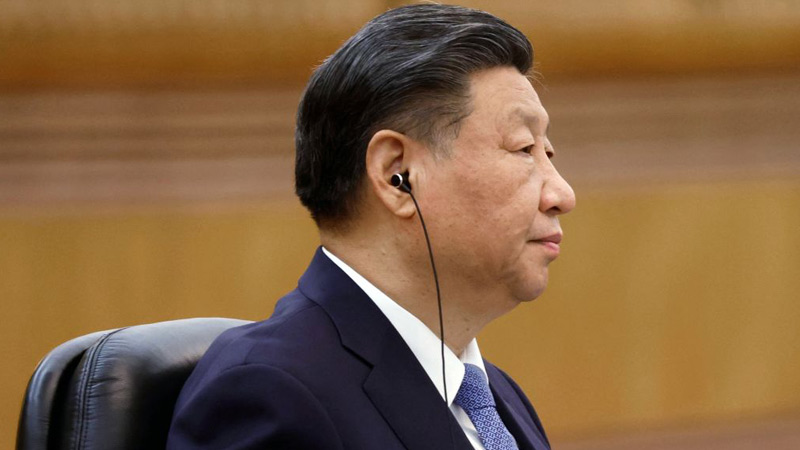Presidential and parliamentary elections will take place on Jan.13, but Beijing has warned that the self-ruled island’s reunification is inevitable.
Taiwan is just over two weeks away from key elections, something increasingly attracting global media attention given fresh threats from Beijing. On Wednesday China warned of further trade sanctions on Taiwan in the event the ruling party “stubbornly” commits to supporting independence.
Spokesman for China’s Taiwan Affairs Office Chen Binhua has addressed a message to the ruling Democratic Progressive Party (DPP), saying “If the DPP authorities are determined to persevere, continue to stubbornly adhere to their Taiwan independence position, and refuse to repent, we support the relevant departments taking further measures in accordance with the regulations.”
Presidential and parliamentary elections will take place on Jan.13, but Beijing has warned that the self-ruled island’s reunification is inevitable.
Chinese leader Xi Jinping on Tuesday issued some his strongest words on the issue thus far, vowing to use “any means” to prevent anyone from “making Taiwan secede from China.”
He issued the words in a speech markingthe130th anniversary of the PRC founder Mao Zedong’s birth. He also stressed the necessity of maintaining the “one country, two systems” policy in Hong Kong and Macau while emphasizing the need for a central government to exercise “overall jurisdiction”.
He said of Taiwan that “China’s complete reunification is an inevitable trend” and that reunification is “what the people desire.” He further urged that the Chinese Communist Party must set its sights of a grander policy of “resolving the Taiwan question in the new era.”
China’s official position has been that it always seeks first reunification through peaceful and political means, and again called for “advance integrated development in all fields” across the strait bases on peaceful development of cross-strait ties.
But that’s when Xi pledged to ‘resolutely’ prevent any movement or outside force from “making Taiwan secede from China by any means.” Of course, China sees Washington as the biggest instigator in the region, particularly through high level visits of US officials and repeat arms transfers involving advanced weapons systems.
* * *
Among Foreign Policy’s 5 Predictions for China in 2024, there is the below analysis of an expected “Taiwan Mini-crisis” sparked by the upcoming election [emphasis ZH]…
“Taiwan holds a presidential election on Jan. 13, and the year could start with a small crisis in the straits. Current Taiwanese Vice President Lai Ching-te, who serves under President Tsai Ing-wen and is a member of the Democratic Progressive Party (DPP), holds a narrow lead in the polls. His election would ire Beijing; he is an advocate for a more independent Taiwan and strongly opposed to the Chinese Communist Party (CCP).
Although Lai has said he won’t call for formal Taiwanese independence or drop the Republic of China name—a red line for Beijing—he has also said that Taiwan’s sovereignty is “a fact” and reminded his fellow candidates that by Beijing’s standards, they are all pro-independence.
A Lai victory would likely prompt aggressive moves from Beijing, including naval maneuvers and airspace intrusions. Reports last week about comments made by Xi to U.S. President Joe Biden about reunification with Taiwan when they met in November stirred some panic in Washington, but an invasion remains highly unlikely. It would be risky and difficult, especially when China is struggling with other crises.
Even a victory for Taiwan’s opposition Kuomintang (KMT) on Jan. 13 may cause some problems. The KMT is more pro-China than the DPP, but it would hardly hand the keys to the island over to Beijing. Chinese officials might overestimate the significance of a KMT election win, seeing it as a sign of China’s influence in Taiwan. Although 17 percent of Taiwanese voters said in a recent survey that China is their main concern, more than twice that number picked the economy.”


